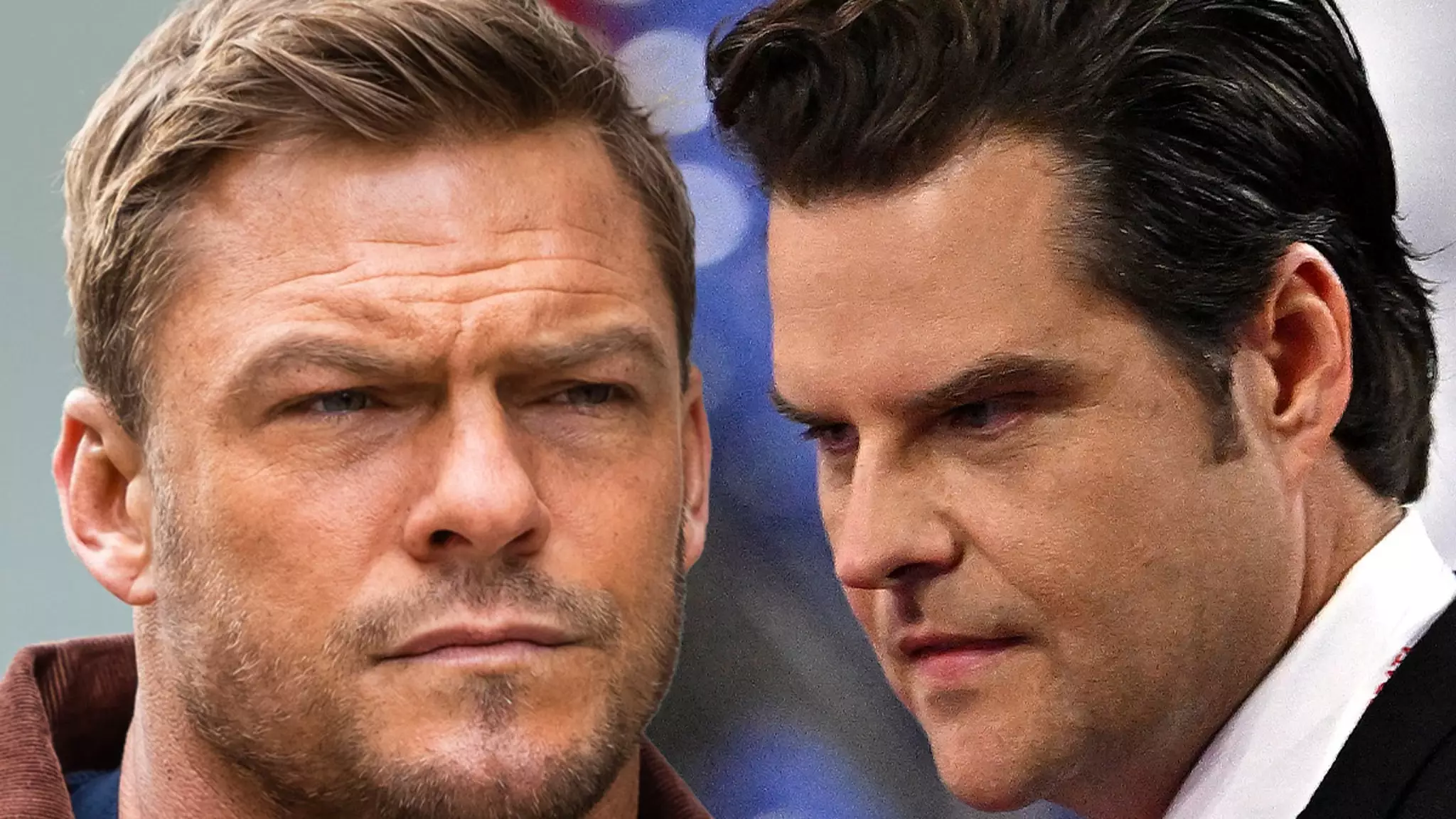Actor Alan Ritchson, known for his role in the Amazon series “Reacher,” has made headlines not just for his cinematic prowess but for his outspoken views on politics, particularly regarding his childhood acquaintance, former Congressman Matt Gaetz. In a recent interview with GQ, Ritchson didn’t hold back, expressing his strong disapproval of Gaetz’s political actions and persona. Growing up in Niceville, Florida, where both men formed early roots, their paths have diverged dramatically, leading Ritchson to label Gaetz as his adversary rather than a former friend.
Ritchson’s choice of words during the interview is particularly striking. His unequivocal statement, “That mother******. We are adversaries,” underscores not just personal disdain but also a deep-seated frustration with the political climate that allows someone like Gaetz to remain influential. It raises the broader question of how childhood relationships can evolve into profound conflicts as individual values and public actions diverge.
Ritchson’s critique isn’t just personal; it touches upon ethical concerns within the political landscape. The actor speaks to the bewilderment he feels towards Gaetz’s electoral support, especially in light of serious allegations against him, including accusations of engaging in inappropriate relationships with underage individuals. Ritchson’s call for voters in the Panhandle of Florida to reconsider their support reflects a growing dissatisfaction among many citizens regarding political figures who may prioritize self-interest over their constituents’ welfare.
The mention of Gaetz’s controversial political maneuvers, such as his withdrawal from consideration for Attorney General under President Trump due to ethical concerns, paints a picture of a troubled political identity. Ritchson’s frustration seems to echo a larger sentiment among disenchanted voters who expect transparency and integrity from their elected officials.
Interestingly, Ritchson mentions a desire to enter politics himself, contemplating a run against figures like Gaetz. However, he candidly notes, “I don’t think I’m duplicitous enough to succeed.” This admission is revealing; Ritchson grapples with the moral compromises that often accompany a political career. Such reflections prompt a critical evaluation of what it takes to be successful in politics today. His self-awareness may garner respect but also raises questions about the feasibility of principled leadership in a climate that frequently rewards duplicity.
Moreover, Ritchson’s discussion broadens to encompass personal challenges, touching upon topics such as drug use and mental health, through which he appears both vulnerable and relatable. His openness about these struggles humanizes him beyond the public persona of a Hollywood star, aligning with the authenticity that many seek in leaders today.
With Ritchson’s evident discontent toward Gaetz, one cannot help but wonder what the future holds for these two figures. While Gaetz’s controversies could potentially make him a vulnerable target, Ritchson’s potential political ambitions remain speculative at best. However, if the actor were to pursue a political career, it would represent a fascinating juxtaposition of celebrity and political activism—a chapter that could redefine how we view representation in politics.
Alan Ritchson’s reflections on Matt Gaetz are a poignant reminder of how deeply personal and political lives can intertwine. As a figure in the entertainment industry, Ritchson’s willingness to voice his discontent may inspire others to confront uncomfortable truths about political figures in their own lives, reminding us that even childhood connections are not immune to scrutiny when ethics are at stake.

